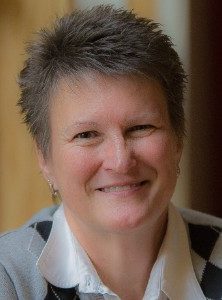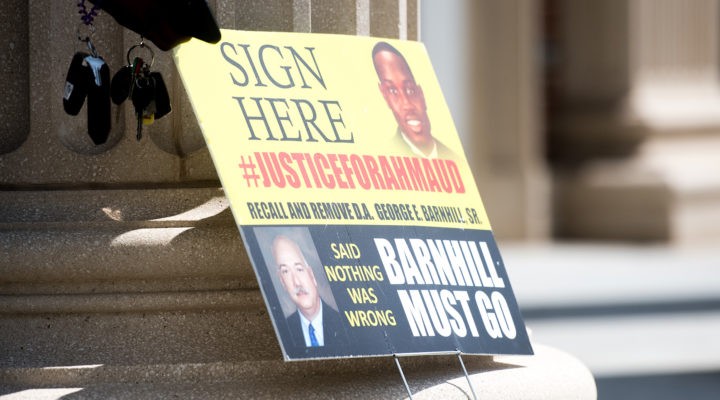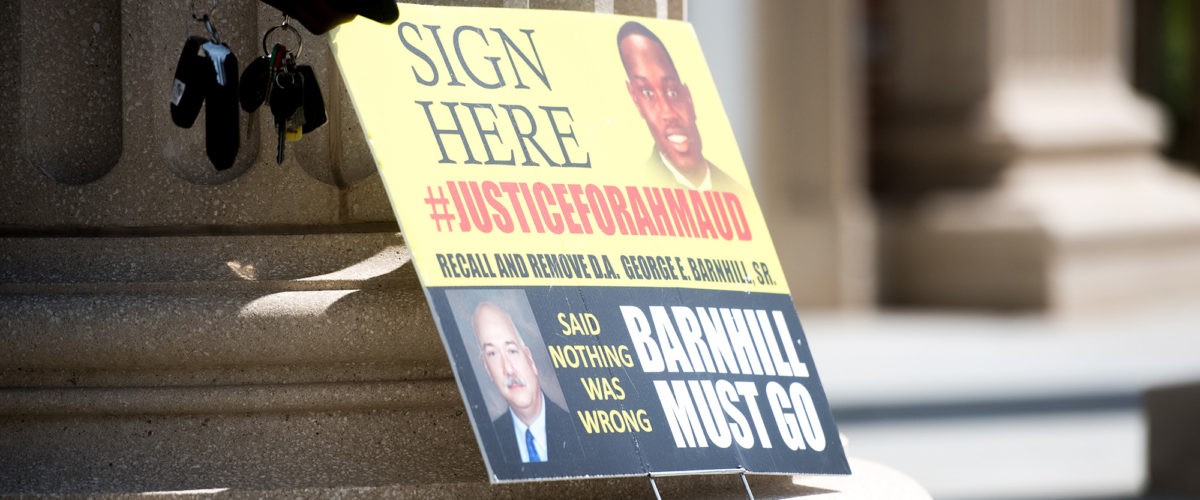I’m seeing a lot of people describe the guilty verdict for the three men who murdered Ahmaud Arbery as “justice.” I’m not so sure I’d agree.
Certainly, the verdict satisfies our desire to see serious consequences for the racist murder of yet another Black man. Maybe it even taps into those unkempt places in us that crave revenge.
But sending three unrepentant white men into a prison system that will likely only further harden them isn’t justice. It’s only an illusion of justice that in reality keeps unjust systems of race and class and gender and the social institutions that maintain them — courts, prisons, education, government, media, religion — in place.

Susan Shaw
Justice would be transforming the situation. Justice would help these men see clearly what they have done and take responsibility for their actions. Justice would be a system of consequences that led these men to make restitution in appropriate ways, not just to the family of Ahmaud Arbery, but to the communities disrupted and traumatized by his death. Justice would mean trying, as much as possible, to repair the harm done by the actions of these men.
Justice also would mean transforming the larger social contexts that facilitate racism, violence and injustice.
In a just system, guns wouldn’t be everywhere. It’s a simple fact. Countries with meaningful gun control laws do not experience a great deal of gun violence. In a just system, Americans would not use the Second Amendment as an excuse to arm themselves to the teeth because we would acknowledge that’s not what the Second Amendment ever really meant. People would accept the data that show that having a gun in the home increases the likelihood that someone in that home will be shot by it. In a just system, Kyle Rittenhouse would not have been able to roam the streets of Kenosha, Wis., armed with a semiautomatic rifle.
In a just system, police and district attorneys would not give white men a pass for committing violence. Arbery’s killers were not arrested and charged for two months after the murder. Good ol’ boys networks would not exist in a just system so that a white retired police officer would be treated with deference by white police and a white district attorney simply on his say-so.
“In a just system, police and district attorneys would not give white men a pass for committing violence.”
In a just system, a Black man would not be targeted simply because he is Black. A white supremacist system never will produce justice because it is always engaged in reproducing itself by teaching white people to fear Black and brown people, by teaching white people that they are superior to Black and brown people, by maintaining impoverished schools in Black and brown communities, by gerrymandering political districts to dilute Black and brown political power, by limiting access to voting, by keeping health care a for-profit industry rather than a public good, by creating food deserts in communities of color and letting children go hungry, by making sure people always can get their hands on a gun, by letting a white boy like Rittenhouse go armed to a protest and shoot people the judge wouldn’t even let prosecutors call “victims,” by sending Arbery’s killers to prison and saying justice has been done as if racism, violence and murder are simply individual acts by bad people rather than symptoms of a bankrupt and corrupt system.
No, I don’t think justice has been done. I think the system worked as it was designed to work. It convicted three murderers without ever addressing the system of white supremacy that enabled the murder. The system protected itself while giving the impression of justice.
This verdict may give us temporary satisfaction, but it is not justice.
Susan M. Shaw is professor of women, gender and sexuality studies at Oregon State University in Corvallis, Ore. She also is an ordained Baptist minister and holds master’s and doctoral degrees from Southern Baptist Theological Seminary. Her most recent book is Intersectional Theology: An Introductory Guide, co-authored with Grace Ji-Sun Kim.
Related articles:
Accountability for the execution of Ahmaud Arbery: More is needed | Opinion by Ken Sehested
Dear white people like me, this is what it means to accuse Black people of causing the very crimes committed against them | Opinion by Mark Wingfield
In Wisconsin, the NRA won | Opinion by Mark Wingfield
The air that surrounds the Ahmaud Arbery trial and so many trials | Opinion by Brittini Palmer
Color-blindness, consistency and the Kyle Rittenhouse verdict | Opinion by Andrew Manis
Kyle Rittenhouse, whiteness, and a divinely ordained license to kill | Opinion by Robert P. Jones


